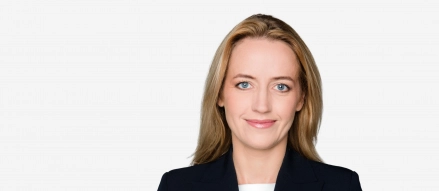
Trends shaping the audit industry worldwide are now also seen in Poland
Agnieszka Pokojska: In September 2020, a survey concerning the future of audit was commissioned by the firm you represent. You have recently got to know the results. What are the key findings?
The study showed that the audit reform carried through in recent years was necessary and that 93% of respondents expect further changes. As much as 89% of respondents supports separation of audit services from advisory services, even though they would welcome the broadening of the scope of auditors’ services. The survey also shows that the appetite for joint audit conducted by at least two audit firms is bigger than it is usually assumed. Such solution is supported by as much as 87% of interviewees. Respondents are also aware that new technologies, which reinforce the auditors’ skills, will not replace them. What is interesting is that still 30% of those surveyed think that audit should prevent frauds. It is not what the audit of financial statements has been designed for. When planning and conducting the audit of financial statements, the auditor must consider the risk that the financial statements can be intentionally misstated but the responsibility for preventing frauds and its detection lies principally on the management and supervisory boards.
Who did participate in the survey?
Approximately 500 people answered to the questions, of which almost half came from Europe. 211 people in this group represented public interest entities. All respondents held strategic positions such as CEO, members of the management responsible for finance, members of audit committees in organisations based in one of 12 countries such as: France, Great Britain, Germany, Spain, RPA, USA, Brazil, China, India.
A few years ago the possibility of combining services for one client was significantly limited in Poland. Is extending the offering by domestic audit firms possible?
Yes. The limitations concern in particular the services provided to the above-mentioned PIEs, i.e. financial sector entities, companies listed on the stock exchange. Despite these limitations the offer of audit firms may include some defined services, in particular assurance services concerning, among others, non-financial information such as information on environmental protection activities, human rights. Although the Polish Accounting Act requires including non-financial information in the management report, the scope of this information is very restricted. In other countries, for example, in France, there are specific reporting requirements, in particular concerning information on actions taken to protect the environment. The need is responded to by assurance services concerning such reporting. Approximately 87% of respondents in our survey highlighted the need for development of such services. It is a clear trend in Western European countries, but it has been slowly emerging also in Poland. The analysis of non-financial reports of Polish financial institutions confirms this trend.
You have also mentioned considerable support for joint audit, i.e. audit in which more than one firm conducting the audit participates. At present Polish businesses do choose this solution despite the fact it is allowed.
Indeed, this option is practically not taken in Poland.
However, please note that, unlike many other countries, we have no incentives for this solution. In countries such as France the choice of joint audit is connected with the prolonged rotation period, i.e. period after which the audit firm must be changed. In Poland, until recently, the rotation period even for joint audit was 5 years. Last year this limitation was lifted by anti-crisis shield regulations. Currently, EU regulations apply directly with respect to this matter, which provide for 10-year rotation period. Surely the extension of rotation period would help to popularize the joint audit. EU regulations allow for introducing the rotation period of up to 24 years. And many countries have decided to do so.
Want to read more? The entire article is available on the gazetaprawna.pl
Want to know more?


